Transplant and Managing Medications
By Jeanmarie Ferguson
Without our medications, we cannot have a successful transplant journey. According to CVS Specialty Pharmacy, up to 20 percent of Kidney recipients are non-adherent to immunosuppressants. Once we have a transplant, anti-rejection medications are our new besties. We leave the hospital with so many new medications. How in the world can we possibly keep all of them organized? It can seem so overwhelming.
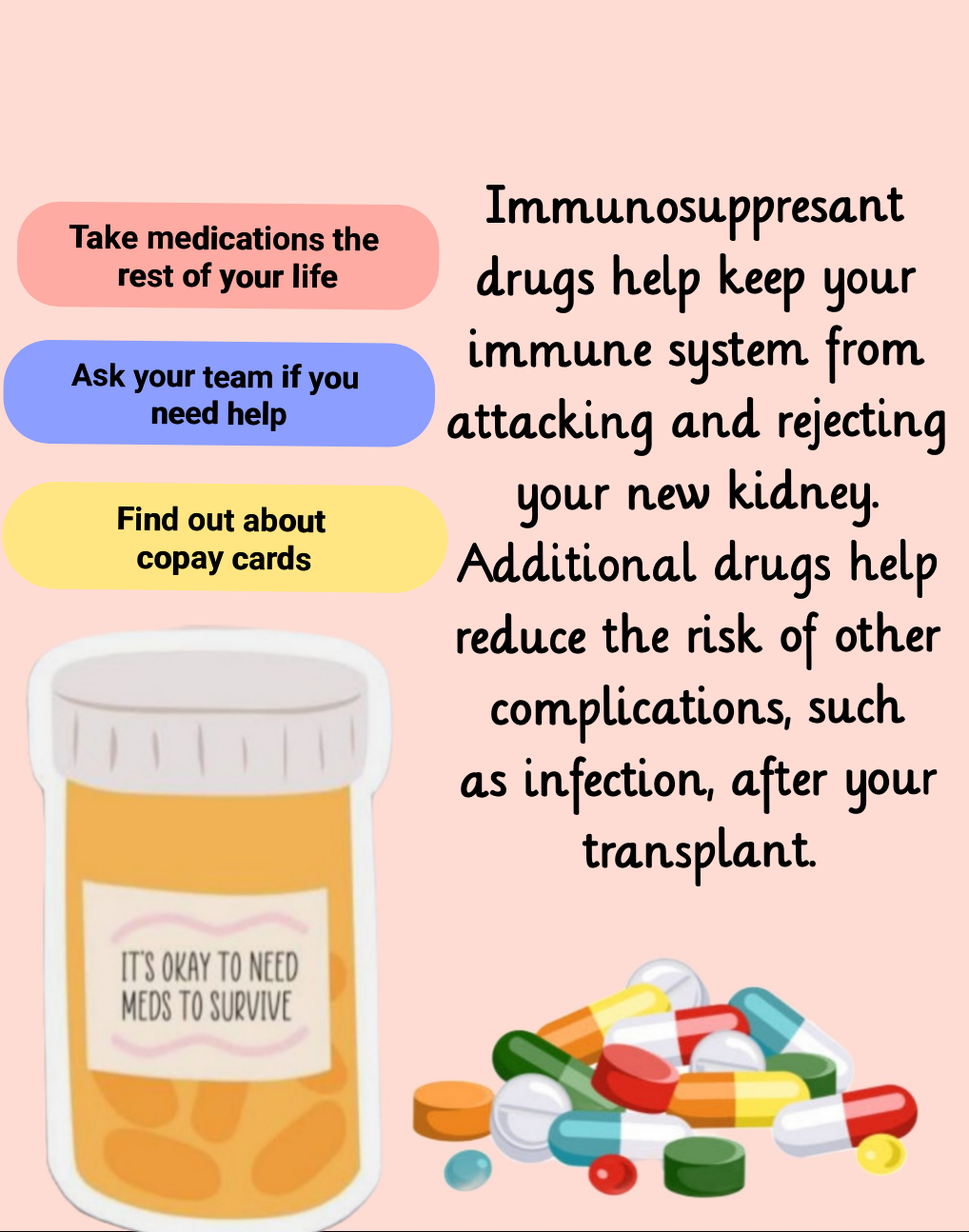
I put together a few tips that will help you get and stay organized. Transplant centers generally give you a game plan when you leave the hospital. My transplant center even set up all my prescriptions with a specialty pharmacy after surgery. Although all that worked out really well in the beginning, and initially it is all you think about. But as you start to heal from the surgery and feel better with more energy, life really begins. You begin living a fantastic life. After all, that is the whole point of receiving a transplant. Work, family, and friends take over your life. Your quality of life is now the best it’s been in years. You are consumed with going out to restaurants, seeing friends, going on trips, work, and family. The transplant can become a distant memory.
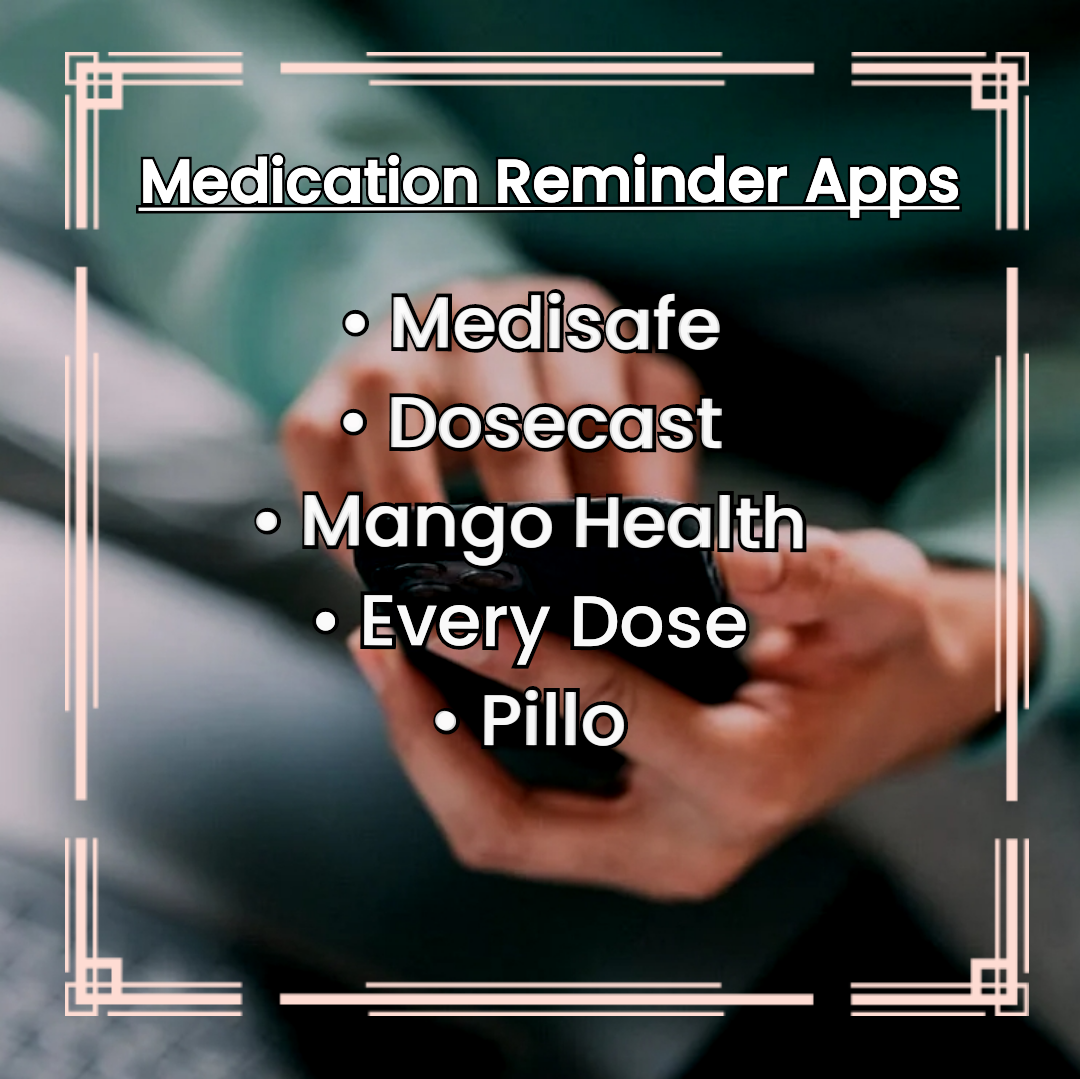
However, your medications cannot take a backseat to your newfound freedom. You cannot ever forget to take your medications. They will forever be the most important thing you can do to ensure your transplant is successful. When I first started out with my transplant in 2006, apps weren’t a thing. With apps, I have found, things can be so much easier to keep track of—especially keeping our medications organized.
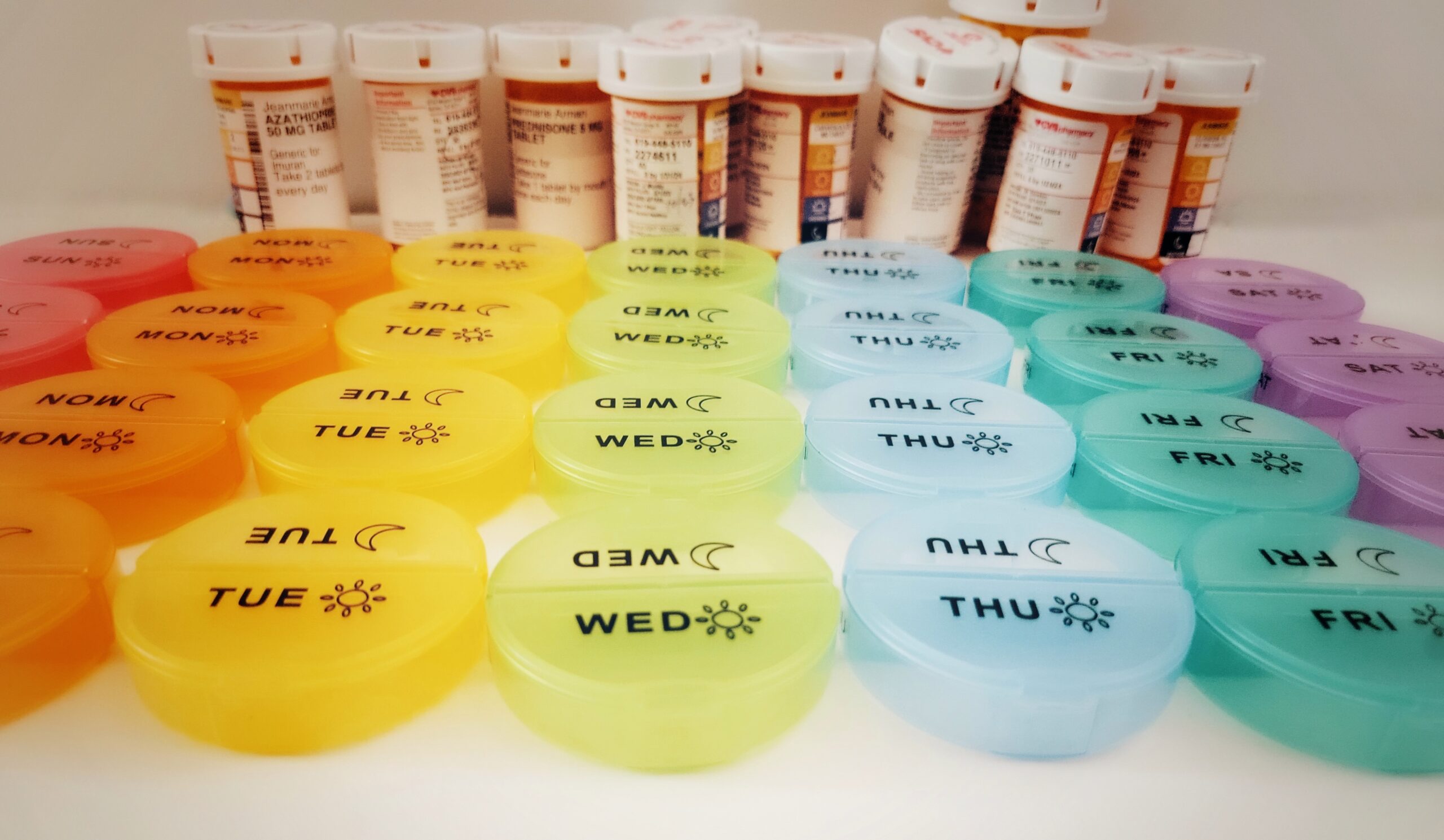
I really love the Medisafe app. There are so many others available for free. Apple even has a health app. Sometimes it might seem silly to have an app to remind you to do something that you do every single day at the same time. But there are so many times that I am distracted with doing an activity. So, for me, it is beneficial. The apps are nice in also keeping a nice list of medications and doses. It’s easy to have an updated medication list for your doctor appointments.
Another use of apps that I have found to be extremely useful is the apps for the pharmacy that are available. I have my personal favorite pharmacy where I live. The app allows me to order medications or ask them to submit to the doctor for a refill. It’s convenient to be able to see all my prescriptions in one app. I like to use just one pharmacy for everything because they can keep track of interactions. The pharmacist caught an interaction of medications once that my doctor did not. It’s always good to have checks and balances.
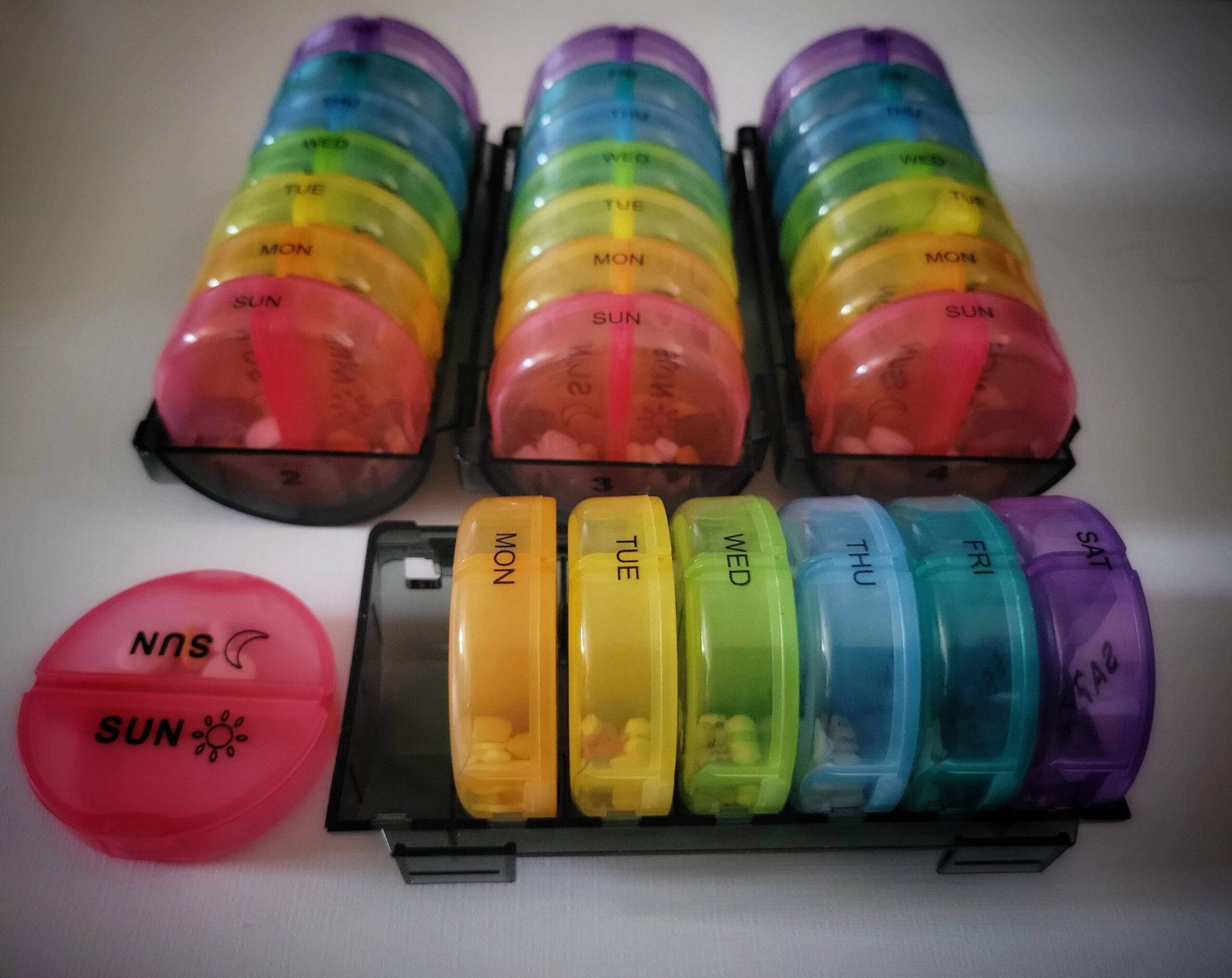
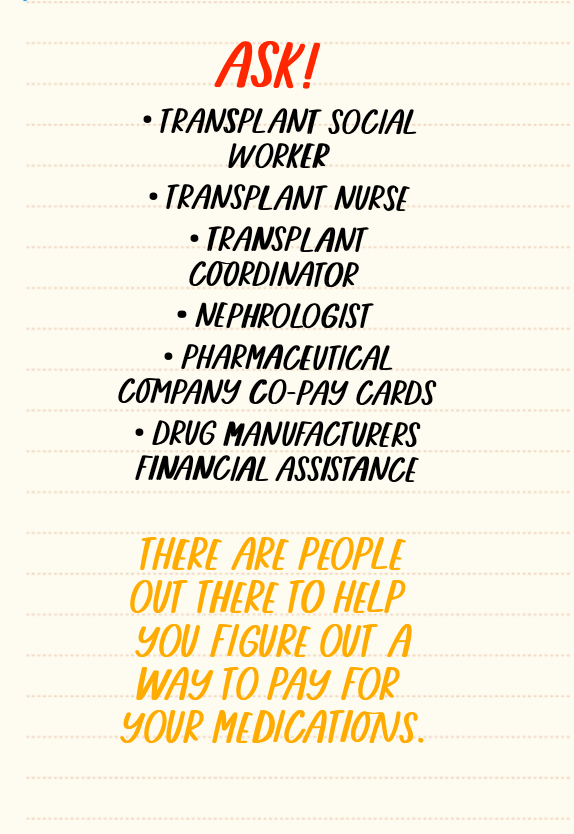
I personally love to use pill organizers. I have tried all sorts of them over the years. Amazon has so many great ones to choose from. You can find one that will fit exactly what will work for your needs the best.
Something I have learned over the years that cannot be stressed enough is if you need help with your medications, ask. Ask your doctor. Ask anyone on the transplant team for help. Ask the Social Worker. Ask your Coordinator. They have lots of resources to be able to help you. We all can go through hard times. We can lose a job and lose our health insurance or we can switch insurance and there is a gap in coverage. Lots of life challenges can hinder getting your medications. Many of the pharmaceutical companies offer copay cards that assist in the payment of the copay. Never be afraid or embarrassed to ask for help. The medications are so important to the success of the transplant and your life.
“Don’t be afraid to lean on others when the weight of the world feels too heavy.” -Unknown
